Pandemic points the way to sustainable agriculture
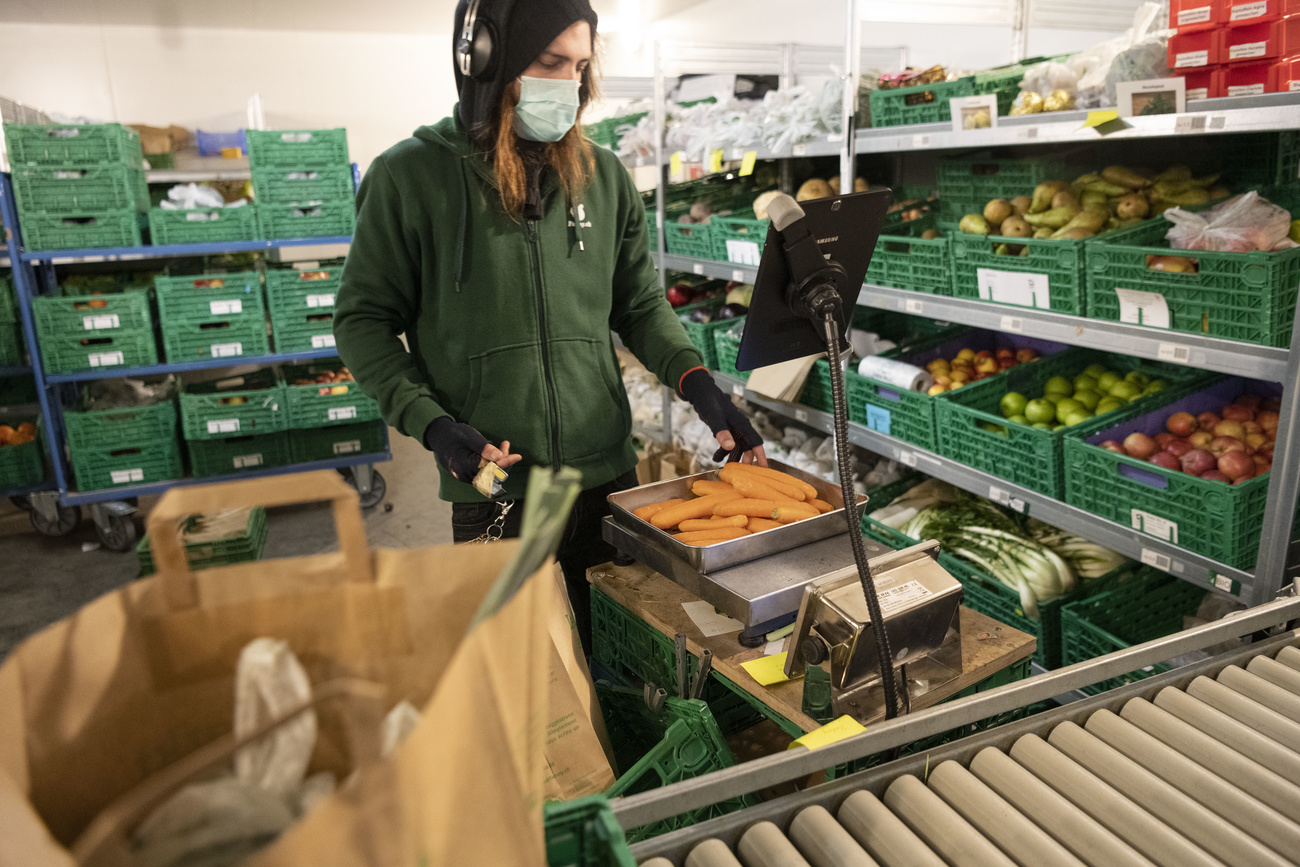
The Covid-19 pandemic has highlighted many weaknesses in our global food system and could present a unique window for reform. The way forward involves a combination of natural, artificial and high-tech approaches, according to leading agriculture and consumer experts.
“What we learn from the shock of the pandemic is that we are already sitting deeply in a broken food system,” said David Bosshart of the Gottlieb Duttweiler Institute (GDI) for economic and social studies, based near Zurich.
The global lockdown caused significant disruption to food supply chains on an international and local level, according to the UN Food and Agriculture Organization.
Restrictions on movement curbed farmers’ access to markets to buy animal feed, seeds and fertiliser, and to sell products. The breakdown in transport systems led to the dumping of perishable food and dramatic price reductions at the farm gate.
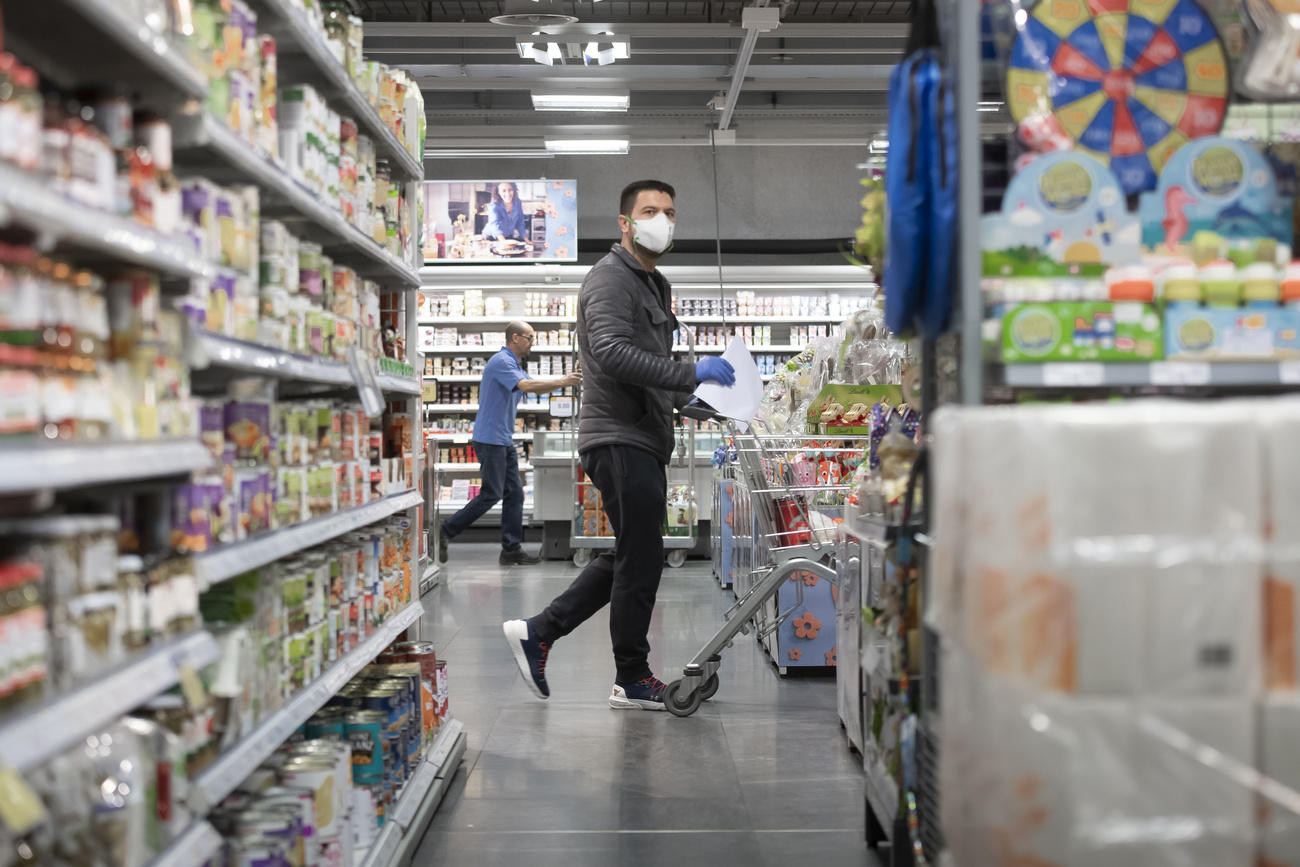
More
How the Swiss food supply chain is coping with Covid-19
In Switzerland, the hotel, restaurant and catering sector vanished overnight, along with farmers’ markets for fresh produce, cutting small suppliers off from their customers.
With migrant agricultural workers unable to travel, fresh produce accumulated at farms from Bangladesh to the United States. Meanwhile slaughterhouses were operating at reduced capacity and meat-processing plants everywhere became hotspots for Covid-19 infection.
Wrong track
In an online discussion on the future of food organised by the GDI, Bosshart explained that our current system was on the wrong track. This is especially worrying because the system must constantly increase output to feed a growing global population. By 2050, it is estimated that we will need to increase the volume of food production by 50%.
Continuing on the current track means “forests and savannahs will be stripped and repurposed into arable land, ecosystems will be lost and intensive monoculture farming techniques will degrade more land,” he said.
A third of agricultural land is already degraded. Aside from negative consequences for the environment, such a heavy agricultural impact on the natural world increases the risk of disease transfer from wildlife to livestock and from animals to people.
There is strong evidence that the novel coronavirus responsible for the current global pandemic originated in bats and passed through an intermediate species to humans.
Cultured meats
To achieve a cleaner agricultural system, a major part of the solution is for humans to change our eating habits, Bosshart said. It is time to move away from animal-based protein, which currently provides a third of protein consumed globally while generating 14.5% of man-made greenhouse gases.
Substitutes for animal-based proteins include plant proteins, cultured meats and fermented proteins.
Contributing to the GDI discussion from Israel, Tammy Meiron of the food-tech start-up incubator Fresh Start discussed progress in the development of cultured meats, which can be grown from tissue samples in a bioreactor.
“These technologies have not yet overcome the challenge of scaling up and being affordable, but it will reach this point because the need is very strong and the capabilities are there,” she said. “We will begin with hybrid products, combining plant-based proteins with cultured meat proteins.”
Meiron estimated that these products would be widely accepted within ten years. “But I believe that we will see the first pioneering products in the market in the next three to five years on a small scale.”
Urban farming
The pandemic has also highlighted the need for less-globalised food supply chains, particularly as the global urban population continues to grow. By 2050, an estimated 68% of people will live in cities, up from 55% in 2016.
Urs Niggli of the Research Institute of Organic Agriculture addressed this issue in the discussion and said that megacities like Mexico City or Istanbul, with more than ten million inhabitants, are particularly vulnerable. Producing food in cities instead of importing it from rural areas is one way for them to become more independent.
Niggli sees two trends in urban food production: urban gardening carried out by individual citizens, and high-tech covered sites. “The potential is that 5% to 10% of all food in the future will be produced in cities,” he said.
“We are able to produce excellent food under completely artificial conditions. We will see many production halls in industrial buildings and on roofs, but we will also see many gardens in empty areas where food is produced in an organic way.”
But he noted that farmers and food processors would still be the main suppliers and they must participate in the search for greener solutions, along with scientists whose expertise is scattered in different disciplines.
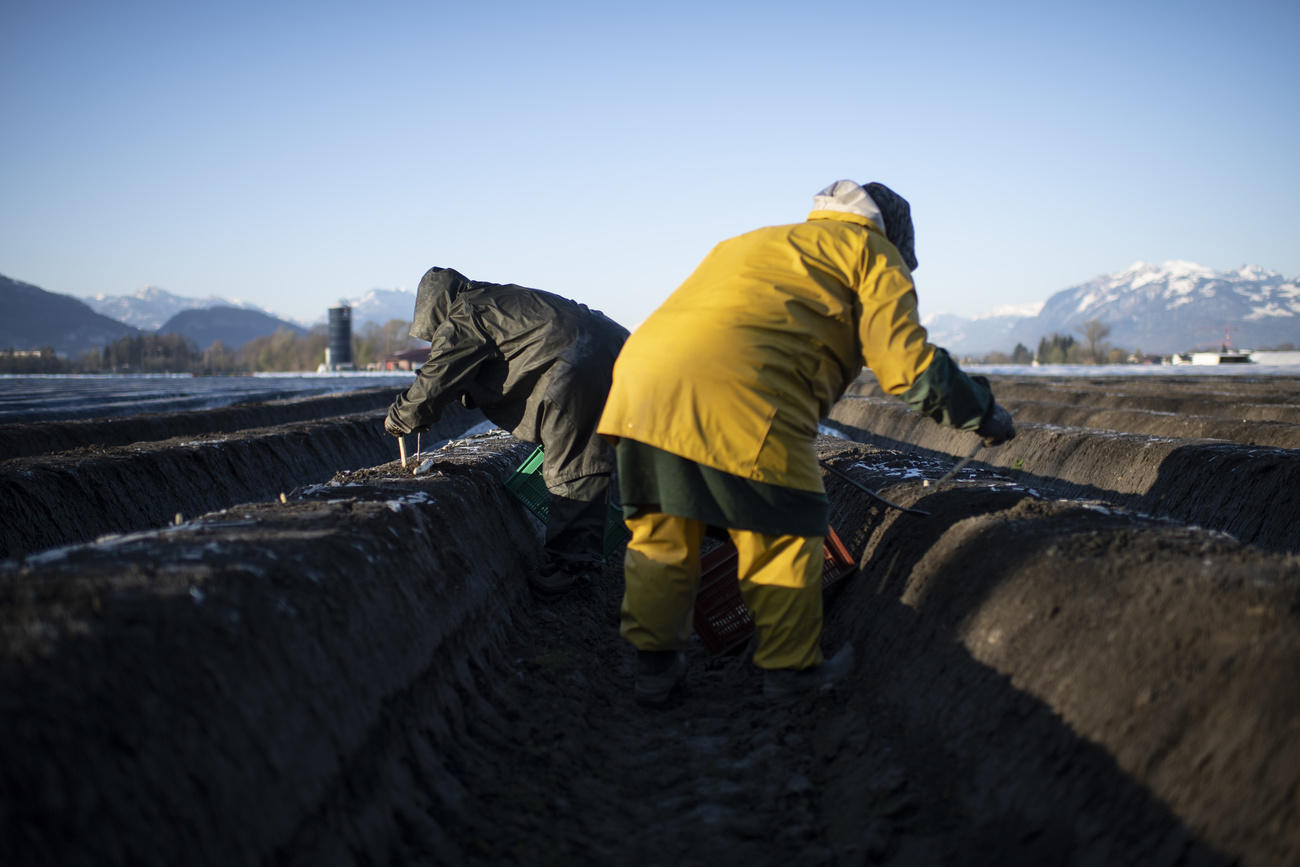
More
When there’s plenty of work in the fields, but few workers
“We have excellent knowledge, but we’re not really able to optimise sustainable farming systems because that requires an understanding of the systemic context,” he said of the scientific community.
Goodbye cervelat?
There will be a place for animals in sustainable farming in the future, Niggli said, but certain changes are inevitable, including higher prices for meat.
A third of the world’s grain currently goes to feed livestock, mainly chicken and pigs, but this will not be viable indefinitely on such a huge scale. An estimated 50 billion chickens are slaughtered for food each year, as are almost 1.5 billion pigs.
“One day we might come to a solution where we use our food waste to feed chickens and pigs so we won’t lose that [sector] totally, but it will be strongly reduced because there is competition between humans and these animals for cereals,” he said.
The issue of food waste has also come to the fore during the pandemic with animals having to be slaughtered for nothing and rotting produce left unharvested in the field.
The Federal Office for the Environment has calculated that, in normal times, food consumption in Switzerland generates 2.8 million tonnes of avoidable food waste a year at all stages of the food chain, both in Switzerland and abroad.
“Please don’t let us waste this crisis,” Bosshart said. “There won’t be a new normal because the old normal was a bad normal. We cannot have healthy people living on an unhealthy planet carrying out inappropriate food production.”

More
Coronavirus: the situation in Switzerland

In compliance with the JTI standards
More: SWI swissinfo.ch certified by the Journalism Trust Initiative








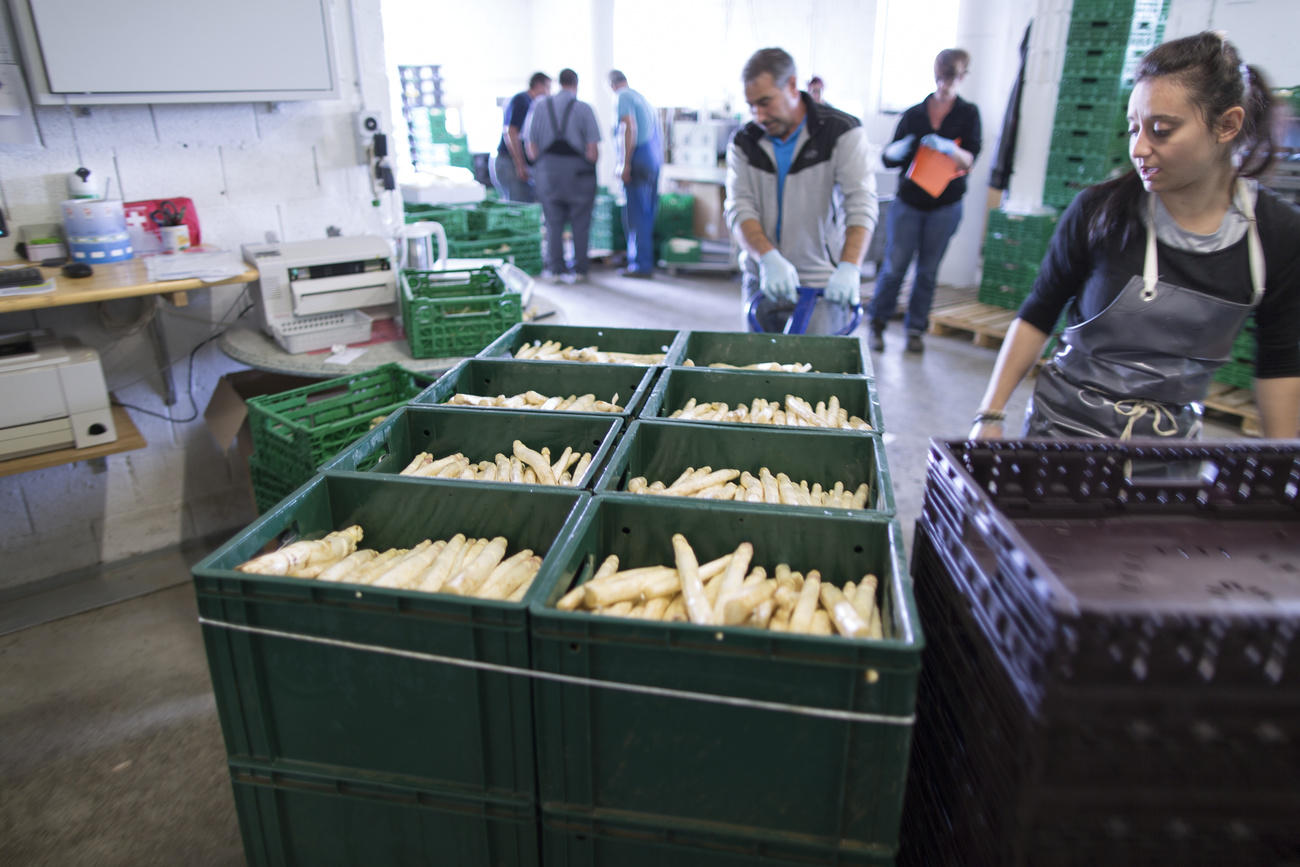
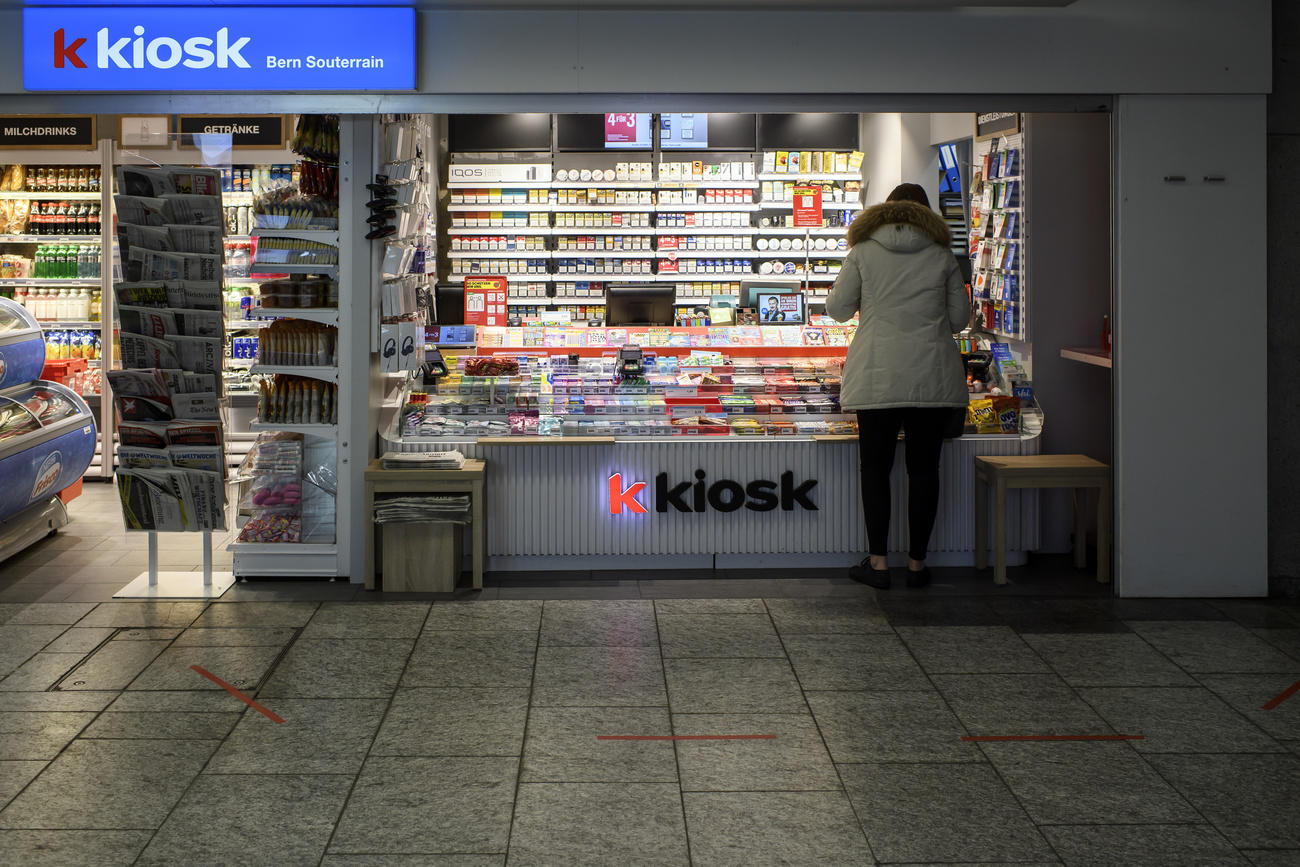

You can find an overview of ongoing debates with our journalists here . Please join us!
If you want to start a conversation about a topic raised in this article or want to report factual errors, email us at english@swissinfo.ch.